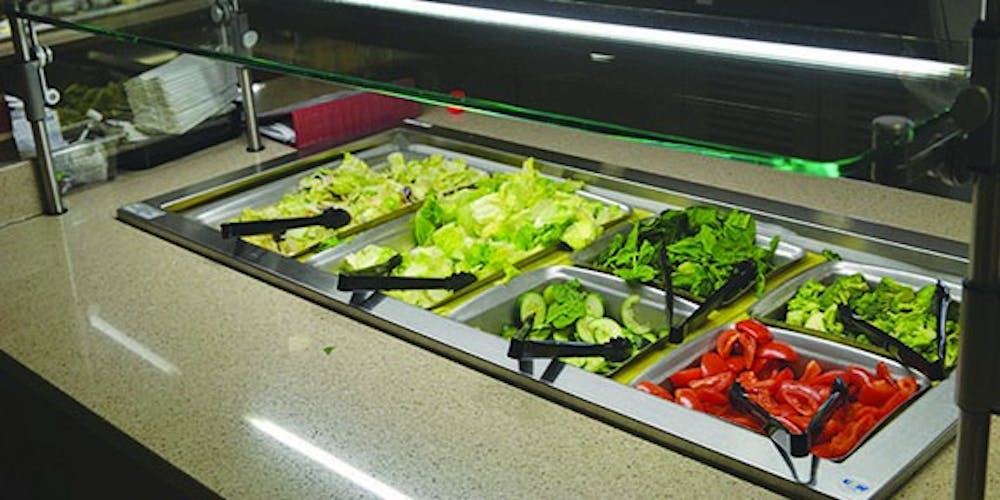For current Shippensburg University students, off-campus flex dollar spending remains an unlikely fantasy.
“It is more complicated than most people think,” said Roger Serr, SU’s vice president for student affairs. “There are a lot of factors that might surprise you.”
Currently, SU is in a seven-year contract with Chartwells Schools Dining Services, a foodservice contractor that serves academic institutions. SU is currently in the third year of the contract, Serr said.
“Even if we wanted to leave, which we don’t, there’s a lot to consider [with choosing a new contractor],” Serr said.
Because SU conducts its foodservices through Chartwells, every dining location on campus is legally owned by the contractor, including the franchises like Starbucks, which Chartwells pays for. If Chartwells lost its contract with SU, the franchises would most likely be taken off campus.
“We have to play by the rules to avoid losing the dining services we have,” Serr said.
Part of playing by the rules, Serr said, is prohibiting flex dollars from being spent off campus.
Despite the numerous legal issues involved with taking flex dollars off campus, there is a myriad of additional factors that concern the university.
By keeping flex dollars on campus, the university can guarantee students cannot purchase items like cigarettes or alcohol, which could become a liability issue.
Even if the university allowed local businesses to accept flex dollars, business owners might turn the university down. According to Serr, the equipment needed to accept flex dollars costs from $15,000 to $18,000.
However, the complexities of flex-spending do not end there. Serr said that if flex dollars are allowed to be spent off campus, the university might have to remove other on-campus assets.
“Really the question is, ‘What do we have to cut?’” Serr said. Another question Serr asked was, what retail organizations do we need to remove to offset the loss of revenue from flex spending?’
While it seems unlikely that current SU students will be able to spend their flex dollars off campus, future students might have the freedom to do so in about four years.
Whenever SU’s foodservice contracts end, the university conducts a rebid. The rebid process, which takes approximately six to eight months, allows foodservice contractors to attempt to sell their services to SU.
SU forms a committee of students and administrators to consider the rebid proposals while simultaneously providing their thoughts about the current contractor’s services, Serr said.





The Slate welcomes thoughtful discussion on all of our stories, but please keep comments civil and on-topic. Read our full guidelines here.